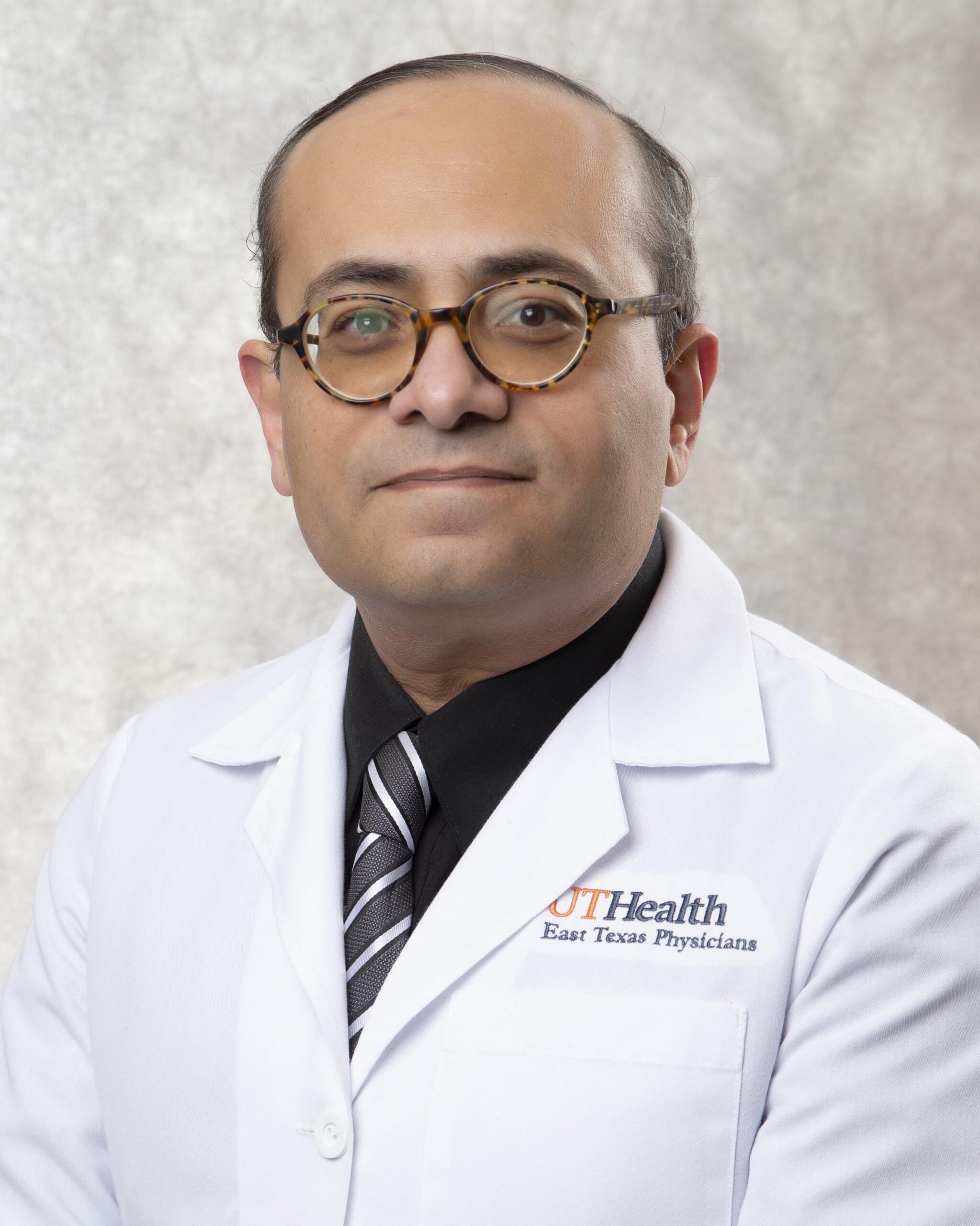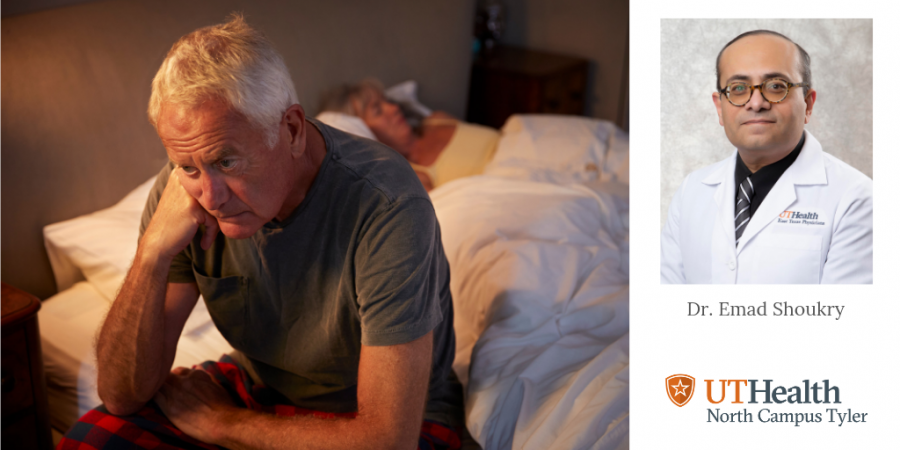Getting a good night’s rest is connected to a person’s overall health and well-being, which is why insomnia can be so disruptive. One group that is hit especially hard by this condition is the geriatric population. Dr. Emad Shoukry, gerontologist at the UT Health North Campus Tyler, shares more about this issue and ways to treat insomnia.
Insomnia is a common problem in the geriatric population (people ages 65 and older). Its assessment requires getting a detailed history, usually from the patient and an informant, a physical exam and occasionally blood tests and imaging studies. Disease process such as Obstructive Sleep Apnea (OSA), Restless Leg Syndrome (RLS) and Periodic Limb Movement Disorder (PLMD) can be suspected and specifically treated. However, anxiety, depression and thyroid disease need to first be ruled out.
Insomnia can be divided into three types: sleep-onset insomnia, when the patient has difficulty falling asleep; sleep-maintenance insomnia, when the patient has difficulty staying asleep; and early awakening, when the patient wakes up at an early hour and cannot go back to sleep. Each type has its own set of causes. Sleep-onset insomnia may be related to anxiety or to Restless Leg Syndrome (RLS). Sleep-maintenance insomnia is possibly related to OSA, nocturia and PLMD, while early awakening is usually related to depression.
RLS is usually described by patients as an abnormal sensation, such as insects crawling under the skin, with urgency to move the legs to alleviate the symptoms. PLMD is usually described by the spouse of the patient as kicking movements of the legs and arms. Patients with OSA usually snore, wake up in the middle of the night gasping for air and when they wake up in the morning they don’t feel refreshed and they can doze off easily during the day while watching TV or reading. They can also complain of morning headaches.
Sometimes, the cause of insomnia cannot be identified, a condition known as primary insomnia. A sleep study is usually warranted in that case to ascertain the absence of one of the aforementioned conditions. A sleep study entails spending the night in a sleep lab where brain activity, respiratory movements and oxygen saturation are monitored. A home sleep study can be done, but it is only indicated if OSA is highly suspected.
If no identifiable cause of insomnia is found following a sleep study, sleep hygiene is recommended. That entails going to bed at the same time every night and waking up at the same time every morning, limiting time spent in bed without sleeping, avoiding alcohol and smoking before going to bed, avoiding watching TV or looking at a cell phone or laptop within two to three hours of bedtime and avoiding caffeinated beverages after 3 p.m. Some medications should be avoided in the evening, such as diuretics, corticosteroids and theophylline, and should be given in the morning. Increasing physical activity during the day and avoiding naps is extremely important. Prior to going to bed, the room should be dimmed and the temperature should be kept as cold as can be tolerated.
Pharmacologic treatment is the last resort in the treatment of insomnia. Over-the-counter melatonin can be tried starting at a dose of 3 mg orally one to two hours before bedtime. Prescription medications approved by the FDA for the treatment of insomnia are associated with serious side effects in the elderly and need to be used cautiously. They include Rozerem, Zolpidem, Triazolam and Eszopiclone 1 mg for sleep onset insomnia. For sleep maintenance insomnia, Eszopiclone 3 mg, Doxepin can be used. Suvorexant can be used for both sleep onset and sleep maintenance insomnia. Common side effects of these medications include worsening of memory problems, increased risk of falls and residual sedation in the morning.
Talk to your physician if you are experiencing any issues with your sleeping pattern or habits. Find a primary care physician at 903-596-DOCS.
Dr. Emad Shoukry is welcoming patients 65 and older at the Center for Healthy Aging at UT Health North Campus Tyler. While Dr. Shoukry sees patients from various backgrounds, he is especially skilled in treating patients with recurring falls, dementia syndromes, delirium and postmenopausal urinary issues. For more information or to schedule an appointment, call 903-877-7911.

Emad Shoukry, MD, is a board-certified gerontologist who practices at the Center for Healthy Aging at UT Health North Campus Tyler. “I chose to specialize in geriatrics because it is truly gratifying. Little changes in a geriatric patient can significantly improve his or her quality of life.”
While Dr. Shoukry sees geriatric patients from various backgrounds, he is especially skilled in treating patients with dementia syndromes, delirium in the elderly, postmenopausal urinary problems and patients with recurring falls.
He is fluent in English, French and Arabic.

